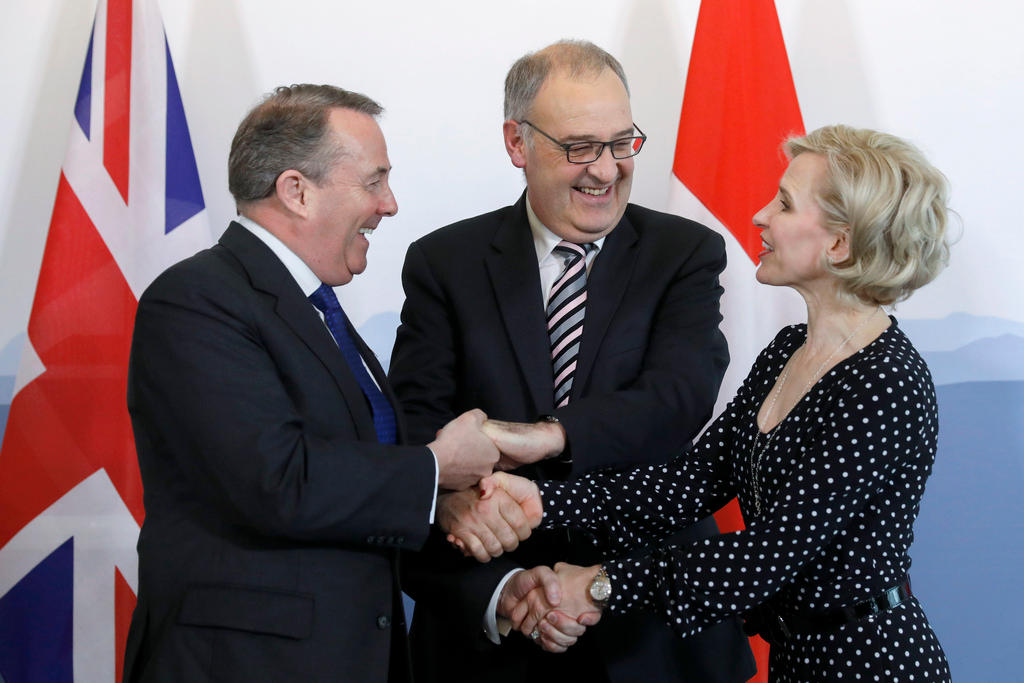
Brexit looms over Geneva motor show

The Geneva International Motor Show opens this week amid growing concerns about the impact of Brexit on car manufacturers in the UK and across Europe. Experts expect that a no-deal Brexit could lead to sudden tariffs that could disrupt the auto industry supply chain.
With three weeks left until UK’s planned exit from the EU, some car manufacturers see the annual Geneva motor show as an opportunity to warn against a no-deal separation while solidifying plans to cope with disruptions, according to Keystone-SDA.
Britain is Europe’s second-biggest buyer of cars and fourth biggest manufacturer. If Britain leaves the EU on March 29 without a withdrawal deal, Reuters news agency reports that vehicles could become harder and costlier to make, and more expensive to buy.
Possible tariffs of up to 10% on vehicles moving between Britain and the EU could have repercussions across the industry.
“I’m sure I speak for most of the country when I say, we just want to get it done. We just want to know where we are and get on with it,” Andy Palmer, the chief executive of British sports car maker Aston Martin, told Reuters news agency.
His company has said it will spend up to £30 million pounds (CHF40 million) on preparing for a potentially disorderly Brexit, including stocking more components and potentially flying in parts if ports are overwhelmed.
Tallying up the potential costs
Along with Aston Martin, British car makers such as McLaren and Bentley are expected to be in Geneva. But others are staying away from Europe’s top car show.
These include Britain’s biggest carmaker Jaguar Land Rover, which is skipping the show as part of cost-cutting measuresExternal link. It has said it could lose £1.2 billion if there is a “bad Brexit deal”. Ford, which does not manufacture cars in the UK but builds nearly 1.3 engines there, has said a no-deal Brexit could cost up to $1 billion (CHF1 billion).
In the event of a hard Brexit, “there will be 10% to 14% customs duties on parts and components entering and leaving the United Kingdom, the economic equation will no longer hold, it will simply no longer be possible to produce profitably in Great Britain” for export to Europe, says Tommaso Pardi, the director of the Permanent Study and Research Group on the Automobile Industry and Employees (Gerpisa), according to Keystone-SDA.
The Japanese automaker Honda recently announced the closure of one of its plants in the UK but denied it was related to Brexit.

More
Switzerland formalises post-Brexit trade agreement with the UK

In compliance with the JTI standards
More: SWI swissinfo.ch certified by the Journalism Trust Initiative

























You can find an overview of ongoing debates with our journalists here . Please join us!
If you want to start a conversation about a topic raised in this article or want to report factual errors, email us at english@swissinfo.ch.